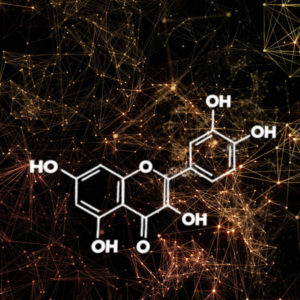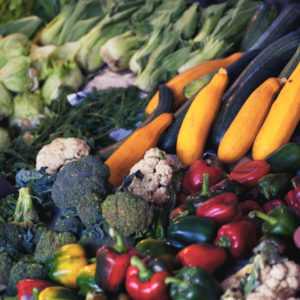We know that vitamins are essential for our health and we’ve heard we can easily get vitamins from our food. But how much food do we need to get our recommended daily vitamin intake?
The answer is, well not that much.
The plate below is a very close representation of the RDI or Recommended Daily Intake of raw vitamins that an adult male needs to get from their food each day to stay healthy.
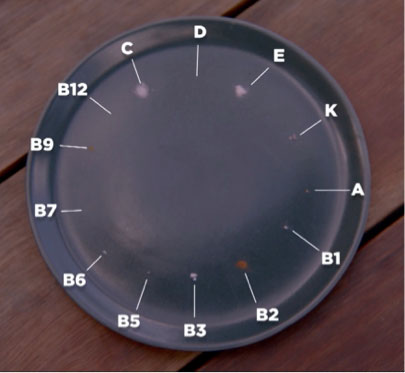
Recommended Daily Intakes or RDIs refer to the levels of essential nutrients needed to meet the nutrient requirements of almost all healthy people. Since RDIs factor in the needs of a diverse group of people (all healthy adults) a generous allowance for variations in absorption and metabolism has been factored in. When there isn’t enough data to generate an accurate RDI, Adequate Intake or AI is used instead. An AI is a scientific estimate for the essential nutrient intake we may need.
And here are the actual figures:
| A | B1 | B2 | B3 | B5 | B6 | B8 | B9 | B12 | C | D | E | K |
|---|---|---|---|---|---|---|---|---|---|---|---|---|
| (Precursor) | Thiamine | Riboflavin | Niacin | Pantothenic acid | Biotin | Folate | Cobalamin | Ascorbic acid | ||||
| 900 μg/day | 1.2 mg/day | 1.3 mg/day | 16 mg/day | 5* mg/day | 1.3 mg/day | 30* μg/day | 400 μg/day | 2.4 μg/day | 90 mg/day | 15 μg/day | 15 mg/day | 120* μg/day |
μg/day – Micrograms per day
mg/day – Milligrams per day
Data is for Males, 31-50 years old
Asterisked (*) data is the Adequate Intake, which is an estimation due to there not being sufficient information to determine a more rigorous recommended dietary allowance
Source: http://nationalacademies.org
It is actually very easy for our bodies to absorb nutrients from food. In fact for healthy children and adults nearly all vitamins and nutrients are at their most potent when sourced directly from food, rather than synthetically. The notable exception is folate (B9). Folate is better absorbed by the body in its synthetic form – folic acid – than as folate from food sources. At the same time we are absorbing vitamins from our food, our bodies are also extracting other important novel nutrients, like phytochemicals, minerals, amino acids and proteins that are integral to our overall health. Even though most vitamins supplements are synthesized to the exact chemical composition of naturally occurring sources, they still don’t work as well when taken in isolation because their absorption is synergistically influenced by the other components of food. That is without these nutrients the vitamins themselves aren’t absorbed as effectively. Which is why having a balanced diet is so important to our well being.
VITAMINS IN OUR FOOD
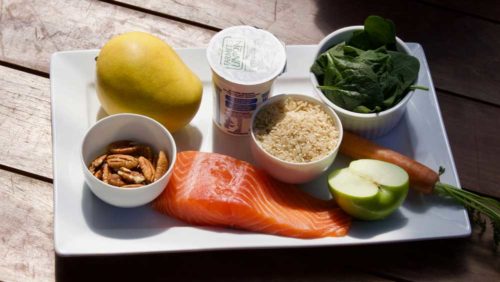
To help us understand what this might look like, we asked Dietitian Dr Yasmine Probst to put together a plate of food containing all the vitamins a healthy adult male needs to eat each day to meet the RDI.
Here’s how it all breaks down
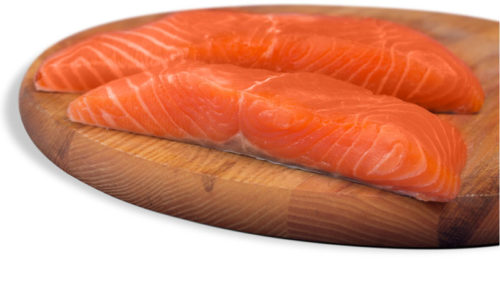
Grilled salmon contains B2, B3, B5, B6, B12, vitamin D, vitamin E
Salmon is an excellent source of vitamin B12 and along with other fatty fish, is also one of the few food sources that contains vitamin D.
For vegetarians, eggs, cow’s milk and yoghurt are a good source of B12, and for natural vitamin D, incidental sunshine if possible, could be your best option.
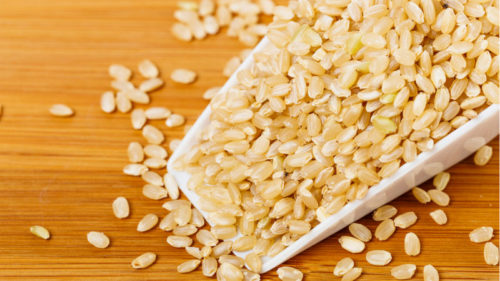
Brown rice contains B1, B2, B3, B5, B6, B7, folates, vitamin E
Brown rice is rich in B3 as well as containing other essential minerals and micronutrients like magnesium and selenium. Brown rice is quite different to white rice in its nutritional composition. The milling and polishing process that converts brown rice into white rice destroys a significant amount of the vitamin B3, vitamin B1, vitamin B6, manganese, iron, and as well as all of the dietary fibre and essential fatty acids. This is why white rice is often fortified or enriched with the missing vitamins and minerals.
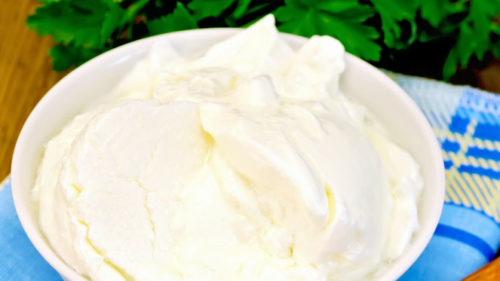
Yoghurt contains B1, B2, B3, vitamin A (greek, regular ~3.5% fat)
Yoghurt contains lots of B12 and B2, along with calcium, protein and zinc. These nutrients have important functions helping maintain our metabolism, immune system cell function and bone health.
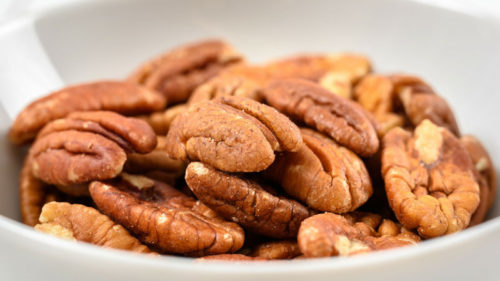
Pecan nuts contains B1, B2, B3, B5, B6, B7, folates, vitamin A, vitamin C, vitamin E
Pecans, along with other nuts, contain lots of the B family vitamins — which your body needs uses to convert food into energy. Pecans also contain other minerals like potassium, calcium and magnesium.
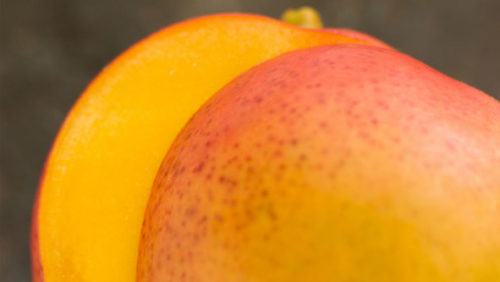
Mango contains B1, B2, B3, B5, vitamin A, vitamin C, vitamin E
Mangoes, like kiwi fruit, strawberries and oranges and other citrus fruits, are great sources of vitamin C.
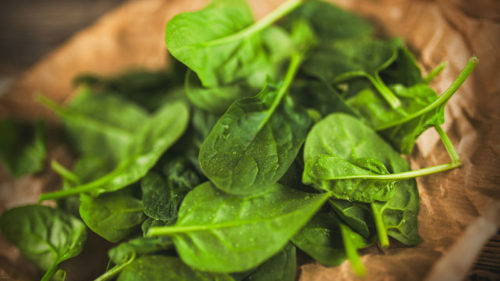
Baby spinach B1, B2, B3, B6, B7, folates, vitamin A, vitamin C, vitamin E, Vitamin K
Dark leafy greens like spinach, kale and chard have high levels of folate as well as vitamins A, C, E and K. They also contain many anti-oxidants and other essential phytochemicals.
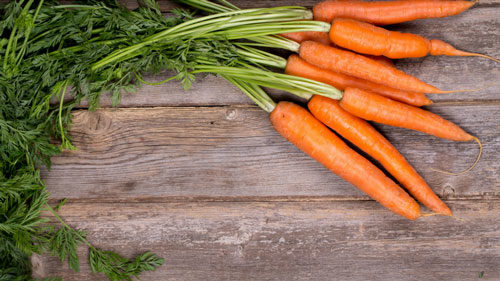
Carrot B1, B2, B3, B5, B6, B7, folates, vitamin A, vitamin C, vitamin E, vitamin K
Carrots are rich sources of beta carotene, a precursor to Vitamin A, which is good for eyesight and many other key cellular functions as well as biotin, vitamin K and fibre. They contain lots of antioxidants like beta-carotene. Beta-carotene is a phytochemical responsible for the orange colour in carrots. It is also converted by the body to make vitamin A (retinol).
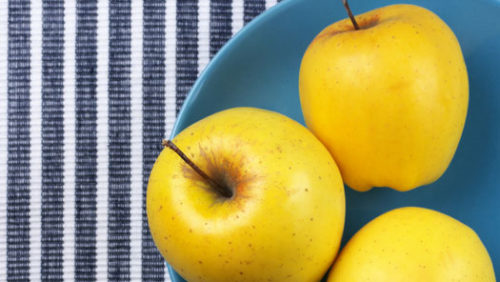
Half an unpeeled apple (Golden Delicious) B1, B2, B3, B6, vitamin A, vitamin C, vitamin E
While apples contain reasonable levels of vitamin C and fibre, it is actually their phytonutrient contents that makes them a great addition to a healthy diet, many of which are powerful antioxidants.
Vegans & vegetarians will need to substitute some of these foods with non-animal based food sources. There are many good references online that provide advice on how to stay healthy on a vegetarian or vegan diet.
